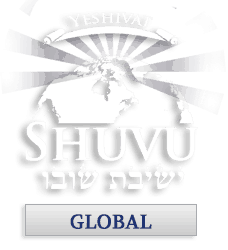ד. וַיֹּ֨אמֶר יְהֹוָ֜ה אֶל־משֶׁ֗ה קַ֚ח אֶת־כָּל־רָאשֵׁ֣י הָעָ֔ם וְהוֹקַ֥ע אוֹתָ֛ם לַֽיהֹוָ֖ה נֶ֣גֶד הַשָּׁ֑מֶשׁ וְיָשֹׁ֛ב חֲר֥וֹן אַף־יְהֹוָ֖ה מִיִּשְׂרָאֵֽל:
ה. וַיֹּ֣אמֶר משֶׁ֔ה אֶל־שֹֽׁפְטֵ֖י יִשְׂרָאֵ֑ל הִרְגוּ֙ אִ֣ישׁ אֲנָשָׁ֔יו הַנִּצְמָדִ֖ים לְבַ֥עַל פְּעֽוֹר:
The Lord said to Moses, “Take all the leaders of the people and hang them before the Lord, facing the sun, and then the flaring anger of the Lord will be removed from Israel. Moses said to the judges of Israel, “Each of you shall kill the men who became attached to Baal Peor.”
This week’s Torah portion contains the story of Pinchas and Zimri. Also within the parashah is a listing of the national offerings in chapters 28 and 29. I would encourage everyone this week to review the national offerings.
Within the story of Pinchas is a small, seemingly insignificant delineation of two different groups of people. Disregard for this delineation has led to much confusion regarding the things that are said in the Besorah.
In the story, the children of Israel are seduced by women of Midian. The seduction leads to Avodah Zarah, Idol worship, and Hashem’s anger flares. It is very important to see which group of people within the children of Israel is drawing Israel toward Avodah Zarah. It is the municipal leaders, who would later be identified as the elders. In Numbers 25:4, we see that this is the group Hashem wishes to punish. And who is to mete out the punishment? The judges. Clearly the judges and the leaders (elders) are two separate groups of people. The judges are righteous people selected by Moses because they are men of Hashem. The leaders of the families, clans, and tribes, are leading the children of Israel to Avodah Zarah, acting in defiance of Hashem. It is Hashem’s desire that the group acting correctly, the judges, punish the group acting incorrectly, the leaders.
There are many instances of the municipal leadership of the children of Israel (the leaders of the families, clans and tribes) leading Israel toward Avodah Zarah. We never see the judges of Israel doing this. In the Besorah, we see criticism of the traditions of the elders. This is very consistent with the Tanakh where the elders frequently guide Israel toward Avodah Zarah. However, a great misconception regarding the Besorah is that the traditions of the elders are the oral tradition of the scribes and Pharisees. The elders and the Pharisees are quite clearly two different groups of people. The Pharisees are not the elders of the municipal government, the heads of families, clans and tribes. The Pharisees are the inheritors of the work of the Anshei Knesset HaGedola (Men of the Great Assembly), who continued the work of the Prophets. These are two different groups of people.
The traditions of the elders in the Besorah has nothing to do with the oral law. The traditions of the elders guide the children of Israel toward Avodah Zarah, the oral law of the Pharisees does nothing of the sort. Therefore criticism of the traditions of the elders is not criticism of the oral law of the Pharisees. This is why Yeshua is perfectly consistent in instructing in Matthew 23: “The scribes and the Pharisees sit in the seat of Moses, be careful to do everything they say.” It is because the scribes and the Pharisees are not promoting the traditions of the elders that this statement is consistent with the rest of Yeshua’s teaching. In fact, the traditions of the elders are teachings allowing assimilation and Hellenism, according to Sadducee doctrine. This is merely a continuation of the elders guiding Israel toward Avodah Zarah. It is the traditions of the elders that the Pharisees specifically teach against.
If we do not pay attention to the history given to us in Scripture, we lose context. Understanding that the elders and the Pharisees were two different groups of people clears up many misconceptions regarding doctrine taught by Yeshua. Always look for context when studying the Bible. Shabbat shalom.
